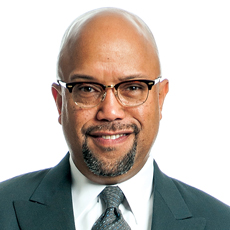
LAS VEGAS – The Centers for Medicare & Medicaid Services’ recent advanced notice of proposed rulemaking could bring a total overhaul of therapy payment rules and be in place as early as October 2018 in a “worse case scenario,” an official with the American Health Care Association/National Center for Assisted Living shared at the group’s annual meeting on Tuesday.
The notice, posted in April, would revise the skilled nursing resident classification system, but according to CMS officials has no set timeline for implementation. Public comment on the notice closed in August.
“The structure of this rule doesn’t mean that it will ever become policy. It means CMS is thinking about it,” said Dan Ciolek, PT, MS, PMP, associate vice president of therapy advocacy for AHCA, in a session titled “Gambling with Function — What SNF Rehab Cards Will Policymakers Play?”
“That doesn’t mean that next week they couldn’t put out a proposed rule and say this is what we’re doing,” Ciolek warned.
In a “worst case scenario,” the agency could propose the rule to take effect in October 2018, without addressing issues AHCA/NCAL brought up in its extensive comments on the notice. Among the group’s chief concerns are worries that the RCS-1 proposal doesn’t properly address resident complexities or align with the requirements of participation, and could increase provider burden.
“Lengths of stay will reduce, hospital admissions would increase … unless there is a payment system that addresses and adapts to those problems,” Ciolek said.
• Addressing provider burden is also among AHCA/NCAL’s legislative priorities for the coming year, through comments to the Medicare Red Tape Project as well as gathering congressional support on issues like the requirements of participation, Clifton J. Porter II, the group’s senior vice president for government affairs, said during his legislative update session.
He also told McKnight’s in pre-session comments that Medicare Part B therapy caps are getting closer to a resolution. Although a sweeping exceptions processes has exempted many long-term care therapy patients from being subject to the caps, they have been an annual thorn in the side of providers, beneficiaries and others. Now, however, there could be significant progress toward a permanent policy on them or, failing that, another extension.
“A variety of needs have come together and the timeline is in a sweet spot to get it done prior to the end of the year,” Porter said. “The current policy is just a patch. If we don’t have the renewal threat every year from Congress … it takes an annual ‘pay-for’ off the table and it takes away risk. We’ve got enough risk out there.”
Porter said that a coalition of providers has come to a “consensus” on how to eliminate the caps and move on to other meaty issues, much like the political and provider communities resolved the Medicare physician payment dilemma two years ago. He added that Congressional staff have been key toward progress in this area, along with Sen. Ben Cardin (D-MD) in particular.
“Now the question is whether they can come up with enough cheddar to pay for it,” Porter said.
• Providers also received an update on regulatory affairs at another highly anticipated session Tuesday afternoon. Speaker Evan Shulman, the deputy director of the nursing homes division of the Centers for Medicare & Medicaid Services, told McKnight’s that providers should continue to prepare for the Nov. 28 rollout of the second phase of the Rules of Participation.
“Focus on the intent behind the requirements,” he counseled providers who might be worrying about the expansiveness of any changes. “Stop and figure out what the person [resident] needs. We give the same message to surveyors. They should be focusing on intent first.”
He said CMS’s intent is education, pointing out the one-year delay in penalties for failures in certain Phase 2 requirements. CMS has vowed to use the no-penalty year to make sure providers get more education in needed areas.
• In a session titled “Data Overload: How to Understand and Use the Data You Have” Joint Commission Field Surveyor Oda Roozeboom explained how providers can improve their approaches toward pressure ulcers, falls and pain management, constant top challenges for providers and their residents. With the estimated 260,000 pressure ulcers in long-term care, providers must have regular skin assessments, Roozeboom emphasized.
“Sometimes they are the hospital’s fault which is why assessment upon admission is so important,” she said. Residents also should be checked when they return from dialysis since they likely would have been sitting for hours.
“If they are out of your care for an extended period of time you need to know how they are when they come back,” she said.
The 68th Annual AHCA/NCAL Convention & Expo concludes Wednesday in Las Vegas.



